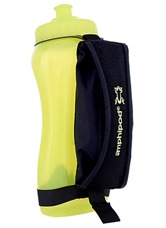 Boston 2011 was not a good marathon for me. I actually don’t remember much of the actual race, but what I do recall is having massive problems regulating my body temperature. I remember drinking a lot, and pouring more than a few cups of water over my head to cool down.
Boston 2011 was not a good marathon for me. I actually don’t remember much of the actual race, but what I do recall is having massive problems regulating my body temperature. I remember drinking a lot, and pouring more than a few cups of water over my head to cool down.
What I remember most vividly from Boston is crossing the finish line and feeling a wave of dizziness pass over me. I remember clutching the fence just past the finish line and thinking to myself that something wasn’t right. I saw a guy with an empty wheelchair not far away, stumbled over, and plopped down into the seat. I told him I felt like was going to pass out, and he promptly wheeled me to the medical tent.
My memories of the med tend are more lucid. The folks working in the med tent concluded pretty quickly that I was mildly hyponatremic. Fortunately, it seemed I was in better shape than some of those lying on beds around me, and I slowly began to feel better. The docs made me drink a few cups of super salty bouillon, and after about a half hour it was clear that I was going to be fine, and I was allowed to check out. I was lucky, but it was an experience that I don’t want to repeat again anytime soon.
Normally I’m a guy who likes to turn to the research in a situation like this – just how much should I be drinking during an extended run or in a race? However, I’ve also learned that though research can provide helpful guidelines, it’s not always great at identifying exactly what is best for me as an individual. As such, I’ve been playing a bit lately with hydration on my long runs with the goal of trying to figure out just how much I need to drink. Turns out that it seems I need a lot less than I thought.
So far this training cycle I have yet to carry water with me on any of my long runs. I usually bring along a few dollars in case I feel the need to stop at a gas station for a drink, but so far I think I’ve only felt the need to do this once on my first 16 miler. On Sunday I left the house for 18 miles, and didn’t drink anything until I returned home – I felt strong throughout. In fact, I ran the second half of the run considerably faster than the first half. I passed a gas station twice, and neither time did I feel a need to stop.
Now, I should say that it was cool (high 40’s, low 50’s F) and overcast when I ran on Sunday. Had it been warm and sunny, I would have definitely carried a handheld water bottle, and I probably would have stopped at the gas station at least once for a refill. I’ve run long in 90 degree summer heat enough times to know that attempting to do so without any fluids would be stupid – if I plan to go for over an hour in summer I always bring a handheld bottle along and sometimes I’ll even wear a hydration pack. I also always take fluids in marathons since the distance and pace warrant it. But, under the right conditions I seem to do just fine with minimal water during my long runs.
I guess the point of this ramble is that we are so often inundated by the message that we need to hydrate extensively when we run, but this isn’t always a good thing. The dangers of overhydration have been emphasized recently in books like Tim Noakes’ “Waterlogged” (have not read it yet), and it’s a lesson I learned firsthand in Boston. My goal next month in Vermont is to run strong, but not overdo the hydration. I’d much rather spend the immediate aftermath of the race eating Ben & Jerry’s ice cream in the sun than lying in a cot in a med tent.
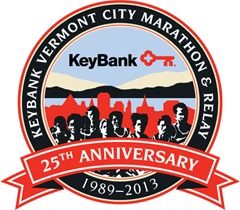
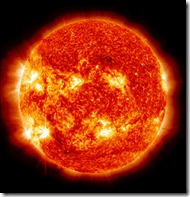

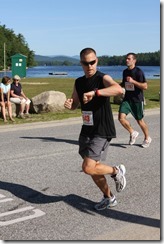
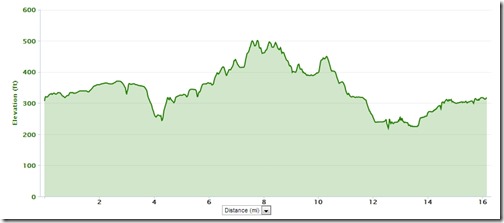


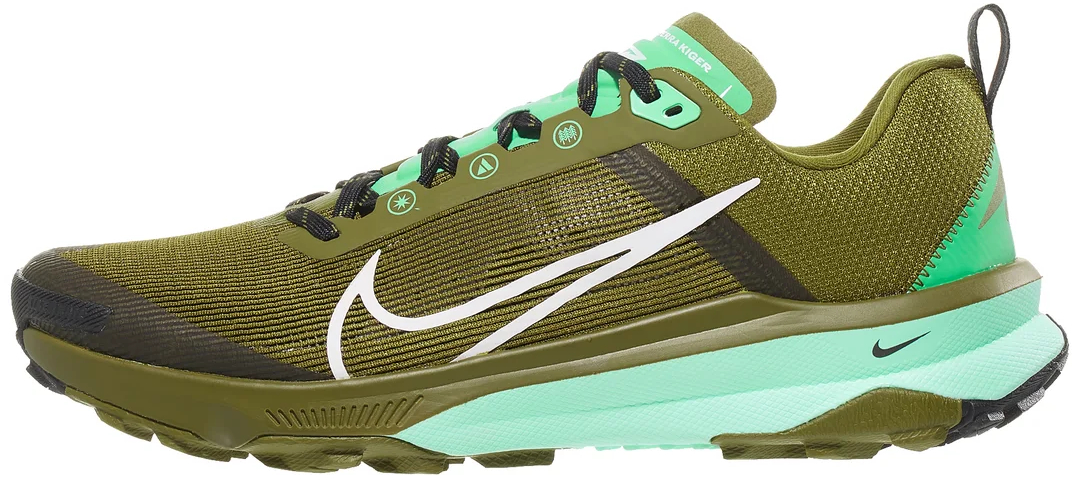
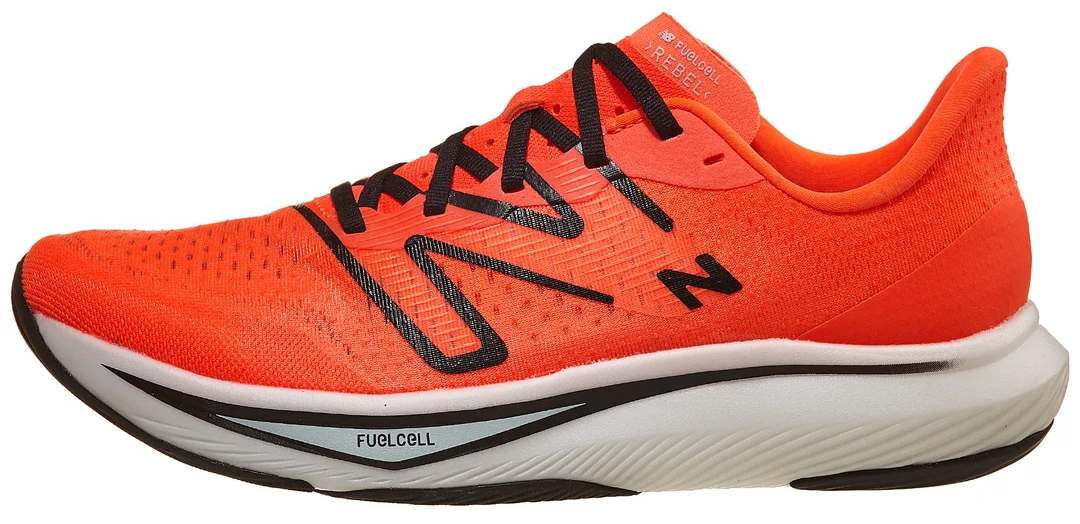




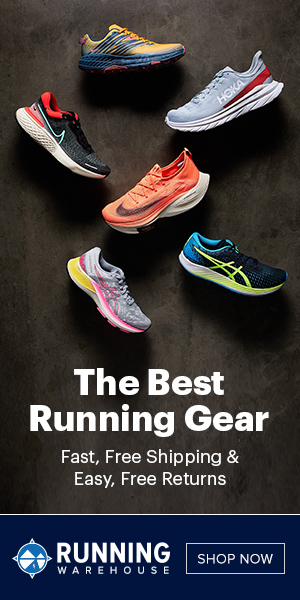

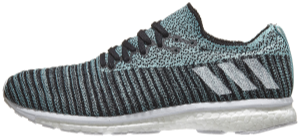
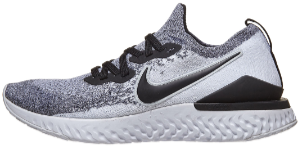


Race nutrition is so difficult!
I’m sort of the opposite, in a way.
I have found I cannot take gels. They do not agree with my digestive system. So, during training for the 2012 Chicago Marathon, I decided to see if water and Gatorade were enough. My best, most effortless and fastest 18 miles was fueled with water and apple cider (I didn’t have any Gatorade). Two weeks later, I nearly bonked during the marathon with only Gatorade and water. Some bananas saved me, but I fell too far down the well to get back on goal pace.
Now during training for a half marathon, on all my longer runs so far (up to a hard a 14 miles), I haven’t had any water or nutrition with me at all. I’m really pleased with my training. The runs haven’t been during warm weather (when I definitely would take water), and I know 13.1 is a lot different than 26.2. But still.
What gives? This is such a puzzle. I want to figure out nutrition to improve my performance at 26.2 so I can get my butt to Boston!
Is it possible you are having trouble with gels containing lots of fructose? You might try Hammer or V-Fuel as an alternative. I’m going to be trialing the latter and would be happy to send you a few if you send me an address (you can email me privately obviously if interested). I find it hard to suck down gels in races too, what I do is use a soft-flask and mix about 3 gels with an equal amount of water. I hold it in hand and take small sips during the race, easier since it’s watered down. Because it’s a soft flask, it’s easy to hold and packs down to nothing once empty so I can stow it in a small waist band pouch or pocket. These are the flasks I use: link to hydrapak.com…
—-
Pete Larson’s Web Links:
-My book: Tread Lightly: link to ow.ly
-Blog: https://runblogger.com
-Twitter: link to twitter.com
-Facebook Page: link to facebook.com…
-Discussion Forum: https://runblogger.com/forum
I have tried Hammer gels, and those were the same as Gu gels or chomps. Any kind of processed sugar that hits my stomach is just bad news, especially when I am physically worked hard. Even Gatorade messes with me a little bit.
Thanks for the offer though!! Really appreciate it.
I’m thinking of trying Nuun or GenUCAN if water and real food isn’t enough, something like dried banana chips or raisins. Fortunately, I know my body can handle real food without distress, but it’s not as convenient as gels!
The most amazing thing I have ever had on a long run (HAT 50K) as boiled potatoes dipped in salt. Amazing. Hard to beat real food…
—-
Pete Larson’s Web Links:
-My book: Tread Lightly: link to ow.ly
-Blog: https://runblogger.com
-Twitter: link to twitter.com
-Facebook Page: link to facebook.com…
-Discussion Forum: https://runblogger.com/forum
The Chicago Marathon actually changed my relationship with bananas. I used to hate them. Now I usually eat 2 a day.
I’m hopeful real food will be enough! I just need to get out and practice, but I really hate carrying things with me when I run. I do use a fuel belt when needed, but it’s a pain in the ass.
I’ve considered trying maple syrup as a gel. I finished a 15 miler at a maple sugar farm and had a couple of small cups of syrup – recovery went really well that day :) Always fun to experiment! I drink a shake for breakfast every day that has whey protein and a banana in it, seems to be working well for training!
—-
Pete Larson’s Web Links:
-My book: Tread Lightly: link to ow.ly
-Blog: https://runblogger.com
-Twitter: link to twitter.com
-Facebook Page: link to facebook.com…
-Discussion Forum: https://runblogger.com/forum
The other thing you can try is something with some fat and protein. Usually sugar works for a while, then you have to add fat and protein or else it just won’t process anymore. For me that happens after about 4 hours of running. I like Stinger bars personally.
Hey Lindsay, I hear ya. I can’t stand more that a couple of gels if that. You may want to try some that have protein in them or there is a brand called PocketFuels, made from nut butters. I haven’t tried them in training yet but did eat one to try. It was delicious!!!! Tasted like a dessert. link to pocketfuelnaturals.com
Their products are made from real food. The gels contain more fat than carbs so it flies in the face of lot of research for fueling for endurance. But hey, life is an experiment of n=1 so it just may be what you need. Good luck!
Noakes’s book is amazing. You will learn almost everything you have read or been told about hydration, heat illnesses and electrolytes is wrong. A good, but difficult read.
“Difficult” is why I haven’t tried to tackle it yet. No time for difficult right now :)
—-
Pete Larson’s Web Links:
-My book: Tread Lightly: link to ow.ly
-Blog: https://runblogger.com
-Twitter: link to twitter.com
-Facebook Page: link to facebook.com…
-Discussion Forum: https://runblogger.com/forum
According to Noakes’s book, the most “dehydrated” runners are nearly always the fastest! It will change your mind about hydration and thermal regulation. A very good read.
2 Thoughts: I have a running friend who does very well using maple syrup in his gel flasks. His take is that the natural sugar is as good as any synthetic product. Second, I have run VT a few times and one year it was very warm, I’ve never seen so many runners down on the sides being tended to. Vermont can be hot and the peril of that course is there is no shade on that course, you’re out and back on the little highway early but later in the race you’re out on the wide open roads when the sun starts to get warm. Be careful about not needing too much water. I’ve been taking less on my runs but it’s New England and it’s been cold and I’ve not needed it. Don’t let your body fool you, I spent 36 hrs in the hosp after a memorial day marathon because of hydration issues.
Yeah, VT is a wildcard. Ran it one year in blazing sun and it was tough, next year was cool and rainy and quite different. I respect heat, so no worries there :)
—-
Pete Larson’s Web Links:
-My book: Tread Lightly: link to ow.ly
-Blog: https://runblogger.com
-Twitter: link to twitter.com
-Facebook Page: link to facebook.com…
-Discussion Forum: https://runblogger.com/forum
I often eat 1-2 salttablets (depending on the weather) on my marathons. That way I keep my saltbalance in order and don’t get sick.
I also have a hard time eating gels but I have found that the Clifs shotbloks is really tasty and they are much easier for me to digest. One pack of Shotbloks got the same energy as 2 gels.
I used to use Gatorade but it was too sweet for me and too much of it made my stomach upset. I also would have dehydration problems in the Texas heat because I sweat so
much.
I finally found First Endurance EFS drink. It is kind of like Gatorade and mixes in water. The flavors are much milder, nothing too strong, or too sweet. It has more sodium, magnesium, and potassium than any other drink I have found.
Now I don’t have any dehydration problems when I exercise for an hour outside.
Over the past few months I’ve been building up miles in preparation for my first official ultra (I’ve done 6 hour events before but no distance specific races). The need for hydration has not been as big of an issue since I live in northern Illinois, but I am more concerned about my salt/electrolyte levels. For longer runs in the past I have carried things like pickles, pretzels or peanuts to keep the sodium levels up, which has worked well enough, but I’m thinking about carrying Nuun tabs with me to drop into one of my handhelds every 6-10 miles. I’m also thinking about “S” caps. Any anecdotal info would be greatly appreciated.
link to irunfar.com…
Interesting read. Thanks! The idea of no sodium intake scares me a little, so I agree with the author. I think my issue will be the sugar intake more than anything. I just can’t stand gels/GU’s.
Pete, in races I almost always prefer the electrolyte drink instead of plain water at the aid stations. For an ultrarun, I carry Hammer Nutrition Fizz, and I put one or two tablets with plain water in a 20-ounce hand-held bottle. I often need less than 20 ounces of electrolyte drink per hour.
I often do take Gatorade in road marathons, and use a gel mix in a flask. Issue for me in Boston was too much of everything.
Sent from my iPad
Great post. I recently ran a 20 miler w no water and felt great. We need far less than we have been led to believe. Anton Krupicka goes 4-5 hrs w no water. If interested in Noakes position listen to my interview w him @ 31 minutes http://paleorunner.podbean.com…
What would you northerners suggest for a Florida runner in the sunny, 80-90 degree, humid weather on a run? I seem to get pretty low on energy after anything longer than 5 miles without something to drink.
For up to 5 miles a handheld bottle works well for me in summer, and if I have water fountains for refills en-route I can be fine with a handheld for much longer. If I’m running longer and won’t have access to water, a lightweight hydration pack like the Hydrapak E-Lite Vest or Nathan Minimist works well.
—-
Pete Larson’s Web Links:
-My book: Tread Lightly: link to ow.ly
-Blog: https://runblogger.com
-Twitter: link to twitter.com
-Facebook Page: link to facebook.com…
-Discussion Forum: https://runblogger.com/forum